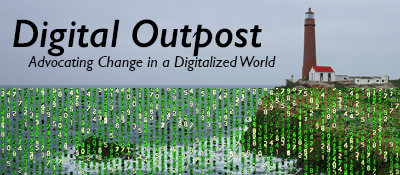So what’s up with Israel / Gaza / Hamas?

The blockade on Gaza, enforced mainly by Israel with some restrictions by Egypt, began around 2007 following Hamas’ election. Citing security concerns, the blockade aims to prevent potential military materials from entering Gaza but has also restricted civilian movement and access to goods, leading to severe humanitarian issues. Over the years, this situation has escalated the dependency on international aid among Gaza’s residents, with around 63% to 80% of the population relying on aid for survival. The blockade has been in place for about 16 years, exacerbating economic hardships and elevating the significance of international aid in the region [6] [7] [8] [9] [10] [16].
Gaza, governed by the political-militant group Hamas, has a complex and tense relationship with Israel. The core of the issue lies in territorial disputes, historical grievances, and political recognition. Israel established its state in 1948, in a region historically inhabited by Palestinians, leading to ongoing disputes over land and borders. The situation worsened in 2007 when Hamas took control of Gaza and Israel imposed a blockade to prevent the entry of materials that could be used for military purposes, severely impacting Gaza’s economy and civilian livelihoods (source). The blockade and military confrontations have led to a humanitarian crisis in Gaza, with a significant portion of the population relying on international aid for survival. The designation of Hamas as a terrorist organization by many countries further complicates the scenario, affecting foreign aid and diplomatic relations. Moreover, control over and access to holy sites in Jerusalem, a city sacred to both Jews and Muslims, remains a major point of contention. The conflict is further fueled by retaliatory attacks between Hamas and Israel, and efforts for peaceful resolutions have been thwarted by deep-seated mistrust and political divisions (source).
To some, Gaza might appear to be the epitome of a welfare state where the majority of the population depends on international aid just to get by. The question inevitably arises: Why stay in a place that offers little opportunity for self-sufficiency or economic advancement? While restrictions on leaving Gaza are a factor, the sheer level of dependency on aid portrays a lack of viable alternatives for creating a self-sustaining environment. This situation prompts a reconsideration of the efficacy of current international aid strategies and calls into question the long-term sustainability of Gaza under its present conditions. Something needs to change.
I don’t normally get religious here, but this seems to be partially a religious issue, so let’s add some Old Testament (legalistic) grace (New Testament)!
For while we were yet with you, we gave you this rule and charge: If anyone will not work, neither let him eat. Indeed, we hear that some among you are disorderly [that they are passing their lives in idleness, neglectful of duty], being busy with other people’s affairs instead of their own and doing no work. Now we charge and exhort such persons [as ministers in Him exhorting those] in the Lord Jesus Christ (the Messiah) that they work in quietness and earn their own food and other necessities. And as for you, brethren, do not become weary or lose heart in doing right [but continue in well-doing without weakening]. But if anyone [in the church] refuses to obey what we say in this letter, take note of that person and do not associate with him, so that he may be ashamed.
Amplified Bible, 2 Th 3:10-14
I’m no one’s judge, but think on that and consider if it applies here.
#GazaBlockade, #IsraelPalestine, #HumanitarianCrisis, #InternationalAid, #WelfareState, #HamasLeadership, #EgyptianBlockade, #TerritorialDisputes, #EconomicHardship, #PoliticalRecognition, #HolySites, #JerusalemConflict, #ForeignAidImpact, #DiplomaticRelations, #MilitaryConfrontation, #SelfSufficiency, #HistoricalGrievances, #BorderDisputes, #NationalSecurity

